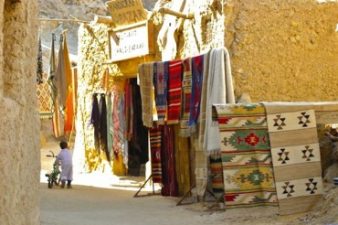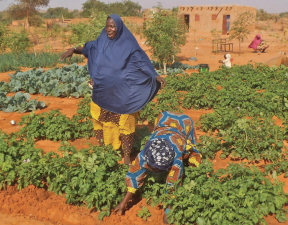Imagine being able to place an entire farm, complete with crops and livestock, in the same space as is required for one of today’s modern urban skyscrapers. A Columbia University professor, Dickson Despommier, has been involved in such a project that could turn a 30 story glass faced building into a vertical agricultural enterprise capable of feeding 50,000 the year round.
While such an idea may seem a bit far-fetched to some people, to others who live in densely populated areas such as Tokyo, Hong Kong and New York City, see this idea as having great benefit, as well as being much more environmental friendly than standard agricultural practices which contribute greatly to greenhouse gases, and global warming.
Using scientifically developed growing techniques developed by NASA and other bio-technical laboratories, Despommier believes these “green towers” could help solve the world’s food and water shortage problems by growing both food and livestock in controlled environments where the temperature remains a constant 22 to 24 degrees Celsius year round with controlled humidity according to desired needs.
Recycled sewage and other waste water, such as run-off from air conditioning systems, can be used to irrigate crops in these “vertical greenhouses” as well as provide drinking water for both humans and livestock, augmented by recycled carbon dioxide gases which can be turned into water.
The buildings for these projects can be constructed according to need and available space, and will almost eliminate greenhouse gases; weather caused crop failures, diseases from untreated biological wastes, and without the use of pesticides and herbicides. In other words, the growing environment can be completely organic, and scientifically controlled.
With a world population expected to reach 9 billion by the year 2050, such ideas may prove to be mankind’s salvation as otherwise, a land area the size of South America’s largest county, Brazil, will be needed to provide the same foodstuffs to feed such a population, whose growth will be higher in large population areas.
If such novel means of agriculture can be beneficial in densely populated urban areas such as Hong Kong, think of how these skyscraper farms could benefit countries in the Middle East, where some cities like Cairo have some of the highest population densities in the world, along with some of the highest temperature extremes (such as those in the United Arab Emirates) as well as some of the most acute water shortages as those found in countries like Jordan.
Cairo has one of the densest and fastest growing populations in the world, with a metro area population of more than 17 million in a country where 75 million people live mostly on a 20 km strip of land on each side of the River Nile. Population growth estimates in Egypt will be more than 120 million by 2050, putting an impossible load on the country’s agriculture and water resources. Constructing vertical farms in Egypt’s major cities will help considerably towards supplying foodstuffs and potable water to a country with such a fast growing population.
UAE city states, such as Dubai can also benefit greatly by such “sky farms”, for although they do not have such population densities as Egypt, they suffer from acute water shortages as well as intense summer temperatures that often pass the 45 C degree mark. If Dubai, for example, can construct an indoor alpine ski slope, with all the water coming from desalination, they can surely build these vertical farms to provide the food that today has to be almost entirely imported.
Despommier predicts that the first vertical farm will be built within the nest 10 to 15 years. And judging from what already has been built from the sands of Dubai and other similar locations, he believes that same oil wealth money that has already built the futuristic buildings in the UAE could be involved in constructing these sky farms as well.
More on Middle East Cleantech:
Solar Technologies FZE Plans to Build Middle East’s Largest Solar Plant in Dubai
Dubai’s Wind Powered Rotating Skyscraper is Building in Motion
Abu Dhabi to Build the Gulf’s Largest Solar Powered Hot Water Project





I could understand farming, but livestock??!!!
looks cool but it needs to be very long though
Interesting piece. I met Ken Yeang, the world’s leading architect of bioclimatic skyscrapers, at the Jerusalem Green Design Seminar earlier this year, and am doing a follow-up interview with him here at his office in London next week. I will ask him about the options for green sky-scapers in Israel, and will post his answer here. watch this space!
Hey Chris,
Build one in a place like Dubai and you’ll be a guest on Larry King Live.
To see more of my Vertical Farm designs, please visit my website at http://www.chrisjacobs.com. Thanks!